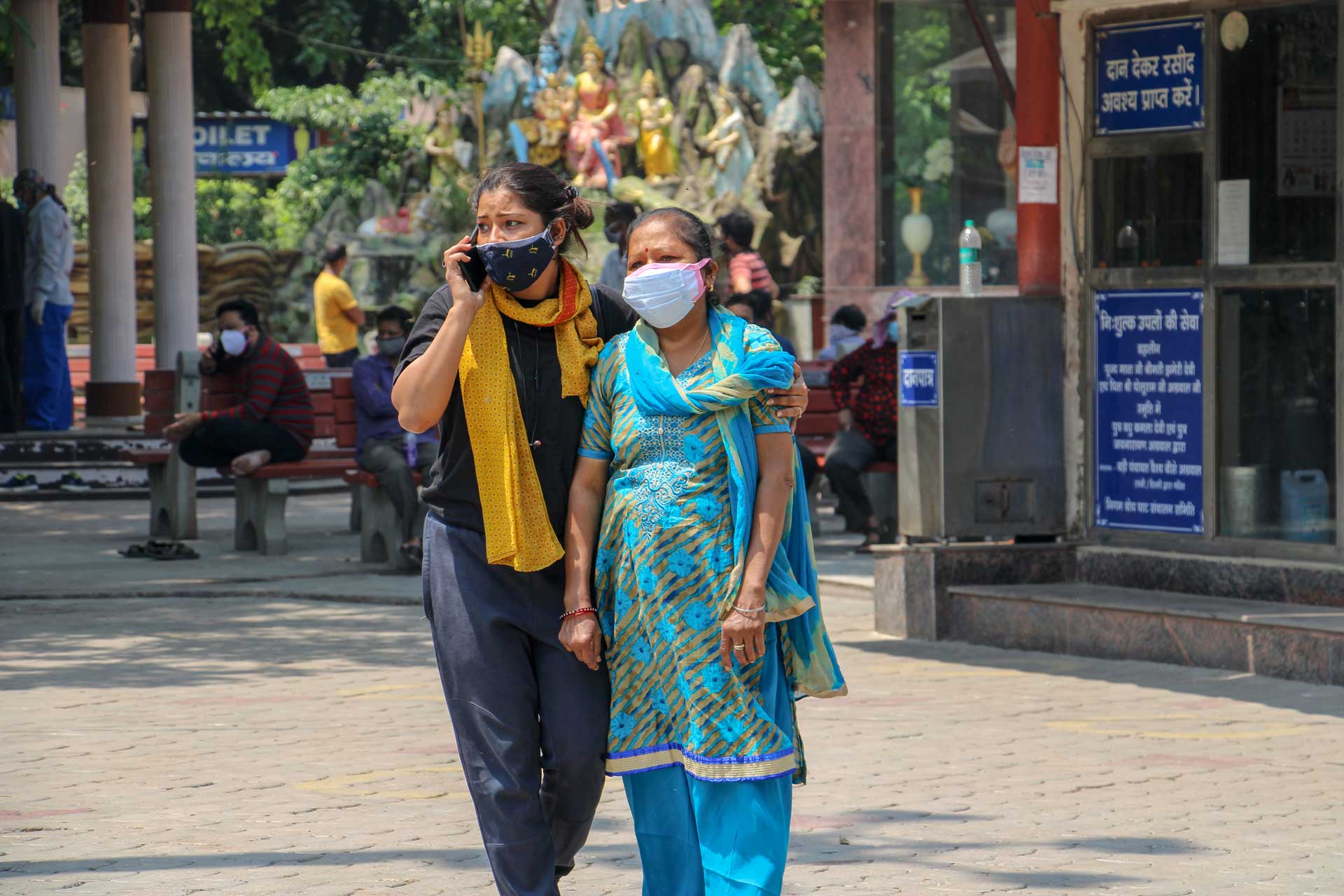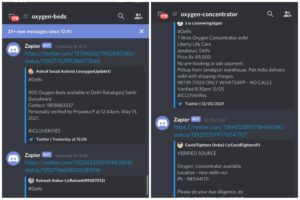Social media the new Covid helpline in face of healthcare collapse

While government remained in a denial mode, the youth took upon themselves to help those in need in the second wave of the pandemic (MIG Photos/ Varsha Singh)
In a country where social media platforms have long become synonymous with hatred, fake news and doctored images and videos, used to divide people on the lines of religion, caste, gender and even political inclination, over the past few weeks, the same platforms have helped the country bridge its numerous divides and watch citizens come together and do their best to help each other survive the deadly second wave of the pandemic.
An acute and unprecedented shortage of medical supplies like oxygen cylinders, plasma and lifesaving drugs due to the incompetency of the State and the sudden surge in cases forced thousands of people all over the country turn to the social media to ask for help from anyone, anywhere to get hold of whatever it was that their loved ones needed in order to survive. Unlike the berating that even the most innocuous posts would attract on Twitter or Instagram, these SOS were almost immediately responded to by their fellow common citizens, who emerged as the true Covid-19 warriors and took it upon themselves to verify various leads for supplies and share them with the needy through the same platforms.
While the government remained in a denial mode and ruthlessly suppressed news of mass funerals and severe paucity of medical services, ordinary citizens have turned Instagram and Twitter timelines into informal digital Covid-19 helplines, saving hundreds of lives.
A lot of this help stems from personal struggles. Nehal Lala, a second year graduate student living in Delhi took upon herself to help as many people as possible by connecting them to verified leads of medical supplies through her social media handles, all the while recovering from the virus herself and mourning her grandfather who had succumbed to it.
“Even though we are engaged in a noble task it cannot be ignored that this is not our job, this is something we are forced to take up upon ourselves because we cannot see our neighbours, friends, families even strangers die just because the government prioritised religious and political gatherings over providing adequate medical supplies to tackle the second wave,” Lala tells Media India Group.
While many people like her have made their accounts public and are working individually, others have come up with novel ways to help people through different mediums ranging from creating relief groups on different platforms to even designing apps.
A group of students studying in Maharaja Surajmal Institute, Janakpuri, in west Delhi have created a server namely, Delhi Covid Resources available on discord.com which collects information of available medical supplies from different mediums, verifies them and presents them on a single platform making it easily accessible to those in need. The server has been catering to over 100 requests on a daily basis.
“Our server takes in data/leads from all over the social sites like Twitter and other platforms, segregates them and presents it in a single location. So let’s say you want medicine supplies or an oxygen concentrator, you click on the respective option and get contact details of all available leads. All this happens in real-time,” Tarush Bhusri, a college student and one of the designers of Delhi Covid Resources tells Media India Group.
“There are 10 members in my team. At any point three members are constantly verifying leads. Moreover, once we verify lead we add it to database. The AI then automatically rechecks whether the lead is genuine or a hoax. Now the community has expanded and we have fact checkers from all across Delhi posting verified leads on our server,” adds Bhusri.
Hurdles in help
While this movement has helped a lot of people, it also comes with its own set of challenges, verifying leads and segregating the genuine from the hoax being the biggest of all. Another challenge faced by people is the digital gap in the country and resources becoming obsolete in less than few hours due to huge demand and insufficient supplies.
On April 20, 2021 Nehal Lala and her friend had come across a list of oxygen suppliers with over 50 telephone numbers. They had started their work, making calls and verifying the leads and only three of the 50 leads turned out to be genuine. “When we called the numbers, a lot of them were switched off, or did not take our calls, some of them were even black marketing the medicines like Remdesivir. There are times when the resources we share become obsolete sometimes in less than an hour due to huge demand,” recalls Lala “I feel it is better that we face these disappointments rather than the families of the patients, atleast they are getting the help they need which makes it worth the effort,” she added.
Impact on mental health
However noble the task of helping people is during these unruly times, answering over 100-200 distress calls in a day has impacted the mental health of the individuals engaged in the work.
“It becomes very difficult, we have been making 50-60 calls a day verifying leads and passing them onto people but on some days only a few of them get verified while the distress calls mount. It becomes really disheartening as even though we are trying our best to help people but still lacking somewhere due to the acute shortage in supplies,” explains Lala.
“It feels overwhelming sometimes but that’s something we have signed up for and if we can go to the bed thinking that we might have actually helped someone in need and it’s totally worth the mental toll,” says Bhusri.
Even though these good Samaritans are happy to help, they don’t shy away from blaming the real culprit that has created the mess in the first place. “I think Government has failed. Providing for the resources shouldn’t be a citizen’s job when we are paying taxes. This is something government should have taken care of. There’s a lot of work to be done on government’s part rather than the face saving which it is currently indulging in,” says Bhusri.










